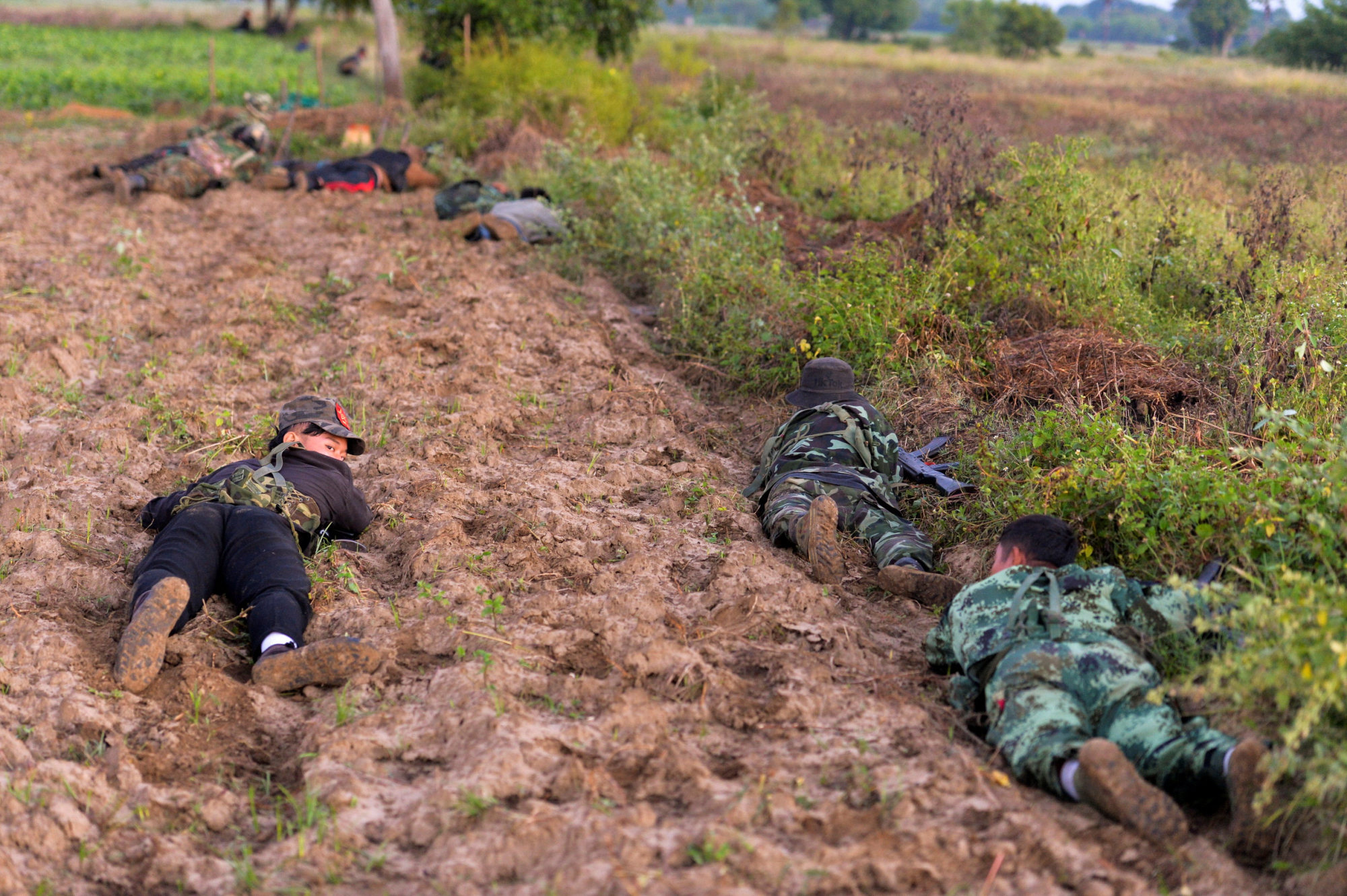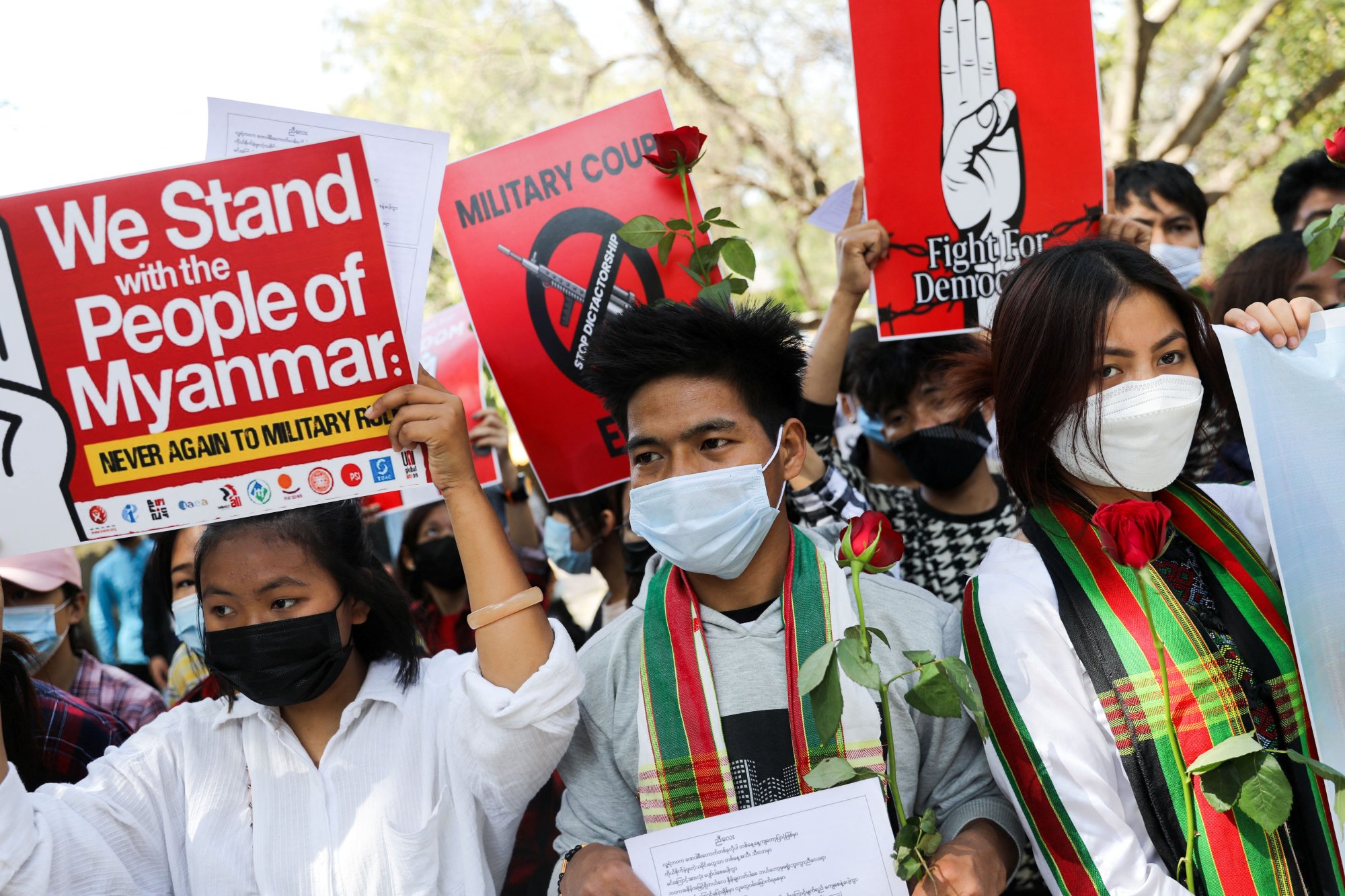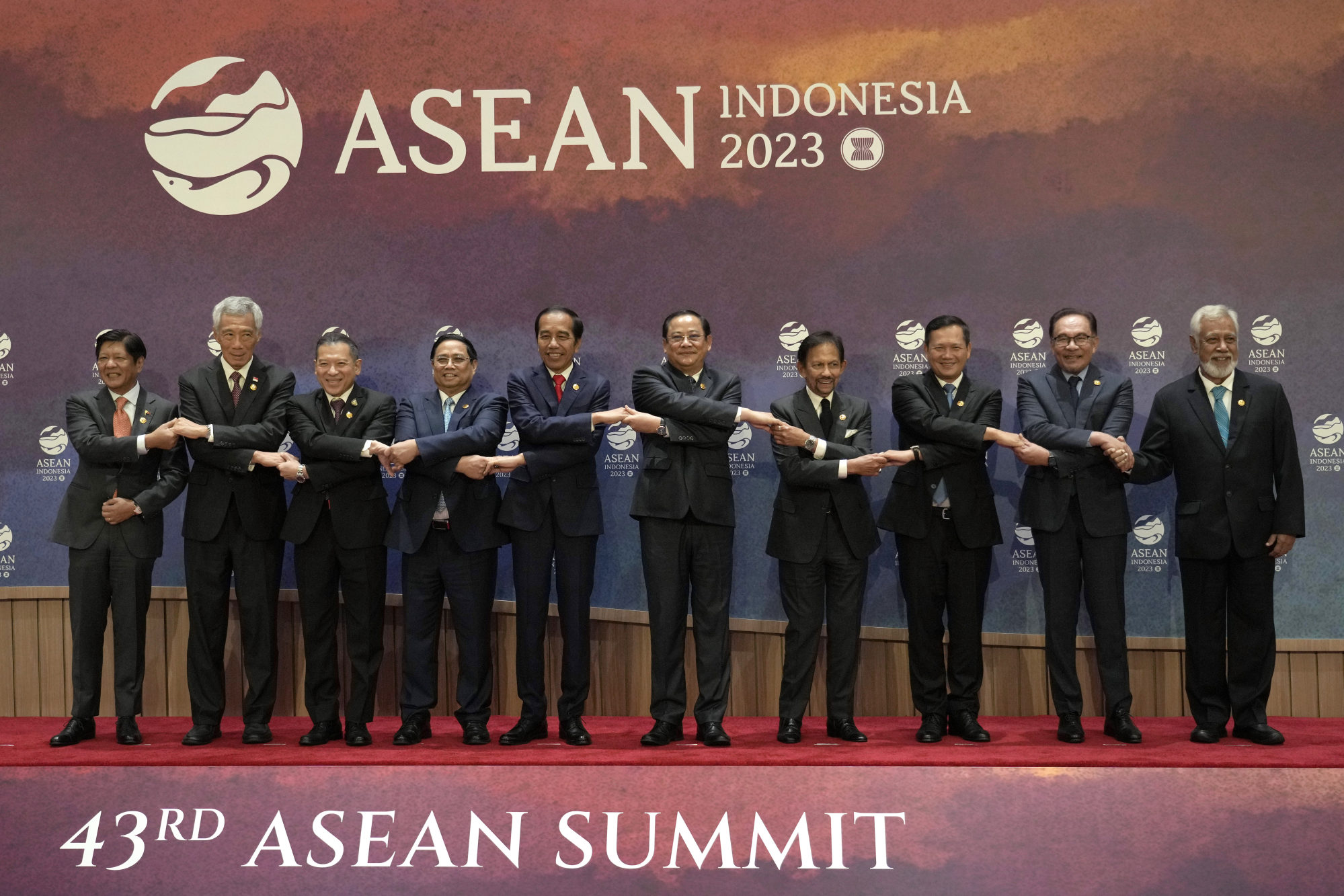“Still, it is hard not to conclude that there is also a lack of imagination in some policy circles, or at least insufficient will to try new things.”
The latest update last week from the Assistance Association for Political Prisoners, a non-profit group run by Myanmar exiles, estimates that 5,000 people have been killed since the coup began, with more than 26,000 people being arrested and over 20,000 held in detention.
Sanctions on the junta, such as blocking access to international markets, had largely been ineffective and were akin to “playing whack-a-mole”, Pedersen said, adding that while some of the junta’s financial transactions had been blocked, the generals could counter these efforts by simply restructuring their banking practices.
Zachary Abuza, a professor at the National War College in Washington specialising in Southeast Asian politics and security, told This Week in Asia that sanctions had been ineffective because of insufficient international support. He suggested that a more strategic approach, particularly targeting jet fuel imports, could prove more successful.
Rather than relying solely on sanctions, Pedersen advocated for more innovative approaches. He recommended supporting “parallel state-building” by aiding emerging local governance structures in regions not under junta control.
“While discussions about international assistance to the resistance have perhaps naturally focused on supporting the armed struggle, there are ample, largely unexplored opportunities for supporting rebel governance – and fewer risks involved,” he said.

These groups are now forming new “parallel” political authorities in Myanmar, but are under-resourced and could benefit from international support, according to Pedersen. Global assistance could also be effective in delivering social services to resistance groups and supporting dialogue among them, he said.
Abuza said the National Unity Government and ethnic armed groups needed ways of communicating and the international community could consider funding more Starlink or satellite internet terminals, for example.
These groups also require access to education and medicine to out-govern the military, he added.

“Effective action from Asean is key as other parts of the world are less likely to intervene,” he said.

China, given its influence in Myanmar and involvement in arranging previous ceasefires, should continue to encourage dialogue between the warring factions and work with Asean, he said.
“Many in the West believe that supporting the rebels in toppling the junta is the best way forward,” he said.
“Such action will only drag both Myanmar – which also happens to be a close partner of Russia – and the Southeast Asian region deeper into the wider major power rivalry, and possibly undermine Asean centrality in the process.”
Additional reporting by Maria Siow


